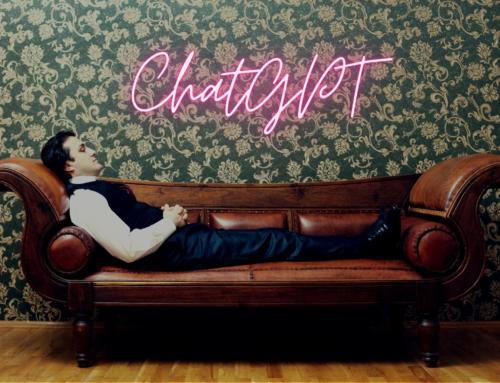My 2020 journal will be one to revisit.
A decade from now, I’ll flip through the pages and remember how I survived a pandemic, mourned the death of my close friend, celebrated my mom’s recovery from COVID-19, voted in a historic election, and pivoted my third-venture into a whole new dynamic industry.
Among those accounts of pain, of course, there will be lots of learning.
I wonder what it would be like to take 500 of the world’s leading professionals and ask what they were thinking during this time.
Well, in 1939, the United Kingdom did something similar–Mass Observation.
Mass-Observation originally aimed to record everyday life in Britain through a panel of around 500 untrained volunteer observers who either maintained diaries or replied to open-ended questionnaires (known as directives). They also paid investigators to anonymously record people’s conversation and behavior at work, on the street, and at various public occasions including public meetings and sporting and religious events.
At the time, the world was at war for the second time. Not with a deadly virus like COVID-19, but a ferocious threat nonetheless—Adolf Hiter.
This summer, I started a search for examples of leaders who led their organizations–be it companies, states, countries–through a major crisis. I focused on historical pioneers, leaders in technology whom I admire, and those who showed unwavering leadership during the 2020 pandemic.
In this search, I am looking for lessons from the challenges overcome by some of the world’s greatest leaders.
This Leadership in Crisis series will continue as I chronicle great examples of resilient leaders.
These nuggets of learning will help me, and hopefully, you get through this crisis and beyond.
My first example is Sir Winston Churchill.
In the summer of 2020, I picked up Erik Larson’s book The Splendid and the Vile.
(It was recommended to me by Corey Thomas, CEO of Rapid 7, during an episode of our #CEO Podcast Series.)
After a visit to NYC right after 9/11, the destruction, pain, and fear in people’s eyes made Erik wonder what it was like to live in a city being bombed daily during the second world war.
Unlike Erik’s previous work, this book is not fiction.
So much has been written about Churchill, some good and some bad.
During World War II, Churchill was named prime minister and ascended to the role with mixed reviews to lead Britain, if not the world, through a nasty crisis.
Larson’s book is a rare glimpse of this period of global unrest through the eyes of one of its most significant leaders, told through the personal journals of people who were there.
How did Churchill marshal the courage of his people? How did he structure his team? How did he win when the path forward was very uncertain? How did he find and align partners to help him?
In this beautiful tale re-created from mass observation journals and more, I found valuable insights into leadership from this quintessential individual.
Here is what I wrote in my journal after the read.
“when you look at the past through a fresh lens, you invariably see the world differently and find new material and insights even along well-trodden paths.”
— Erik Larson
Churchill was an excellent orator, convincingly getting everyone to fight.
As bombers carpeted the city on an almost daily basis, Churchill had to muster the country’s drive to fight on.
At times as CEO, you have to convince the team to stay in the fight, focus on what they control, and try to make the best of a difficult situation. Being able to deliver a talk and a well-placed email or a 1:1 conversation that sends the right message can be challenging.
Churchill offers an excellent example of how to deliver sobering speeches that inspire.
“The right to guide the course of world history is the noblest prize of victory. We are still toiling up the hill; we have not yet reached the crest-line of it; we cannot survey the landscape or even imagine what its condition will be when that longed-for morning comes. The task which lies before us immediately is at once practical, more simple and more stern. I hope—indeed I pray—that we shall not be found unworthy of our victory if after toil and tribulation it is granted to us. For the rest, we have to gain the victory. That is our task.” –Winston S. Churchill, 20 August 1940.
Exemplify “keep calm and carry on.”
Churchill led with a stiff upper lip showing strength, courage, and resolve.
As CEO, the team is always looking to you to understand how to react to crises. If you are full of anxiety and defocused, the team will be as well.
Churchill had an uncanny way of using well-defined processes, including letter-writing, daily war status updates, crisis team problem solving, and strategy sessions.
Be the quintessential motivator — buoying spirits.
Getting the British troops out of Dunkirk required overwhelming optimism.
The Battle of Dunkirk (French: Bataille de Dunkerque) was fought in Dunkirk (Dunkerque), France, during the Second World War, between the Allies and Nazi Germany. As the Allies were losing the Battle of France on the Western Front, the Battle of Dunkirk was the defense and evacuation to Britain of British and other Allied forces in Europe from 26 May to 4 June 1940.
Churchill masterfully used optimism to encourage his people to think broadly about challenging problems. To evacuate British troops from Dunkirk, he enlisted civilian seamen’s help and appealed to their sense of duty to the country.
He was especially adept at thinking well outside the box to find solutions during significant crises. Nothing was ever off the table.
But, it required a deep sense of optimism even to begin to enlist.
He said, “Do not let us speak of darker days; let us speak rather of sterner days. These are not dark days: these are great days – the greatest days our country has ever lived.”
Hire the best leaders (and trusted friends) to lead divisions. Get them to go around the process, even break it, to do the impossible.
To increase the output of aircraft manufacturing in Britain to help match the German fleet, Churchill hired his most trusted friend–Lord Beaverbrook— to lead the effort. He didn’t just put him in charge; he empowered him to do whatever was necessary to achieve the goals. At times, this involved Beaverbrook breaking the military’s most sacred processes and rules.
Beaverbrook was successful in overhauling the UK’s aircraft production and far exceeded Churchill’s expectations. To accomplish this, he broke some things along the way.
In times of war, you may need to break your current processes to achieve the unachievable.
Hire the best leaders (and trusted friends) to lead divisions. Get them to go around the process, even break it, to do the impossible.
To increase the output of aircraft manufacturing in Britain to help match the German fleet, Churchill hired his most trusted friend–Lord Beaverbrook— to lead the effort. He didn’t just put him in charge; he empowered him to do whatever was necessary to achieve the goals. At times, this involved Beaverbrook breaking the military’s most sacred processes and rules.
Beaverbrook was successful in overhauling the UK’s aircraft production and far exceeded Churchill’s expectations. To accomplish this, he broke some things along the way.
In times of war, you may need to break your current processes to achieve the unachievable.
Courted the US into the war to help them win
Churchill knew Britain could not win the war alone. France had already surrendered to Hitler.
He needed a strong alley in an unprecedented war, and he found that in FDR.
You don’t have to go it alone during a major crisis. A strong partner in your industry might be the best approach to getting through a challenging situation.
Have relentless energy and a “never give up” attitude.
“This is the lesson: never give in, never give in, never, never, never, never — in nothing, great or small, large or petty — never give in except to convictions of honor and good sense. Never yield to force; never yield to the apparently overwhelming might of the enemy.”
Churchill worked day and night. He was even known to work from his bed with a heavy cold. His relentless attitude helped Britain survive impending doom.
During a crisis, you will feel exhausted. You have to consider it a marathon.
In the end, getting to the finish line is a reward that is always worth it.
Other notes in my journal include:
- Love life and enjoy the moment
- Be a father to the people, even in massive amounts of death.
- Be a military strategist and commander.
- Triumph in periods of importance — like Dunkirk
Fascinating things I found in the book included:
- Air travel at the time
- Manufacturing
- The breadth of Hitler’s forces and focus
Further Reading on Winston Churchill:
Churchill: Walking with Destiny by Andrew Roberts
Churchill: The Power of Words by Winston Churchill
Memoirs of the Second World War by Winston Churchill
The Last Lion: Winston Spencer Churchill – Defender of the Realm 1940-1965


